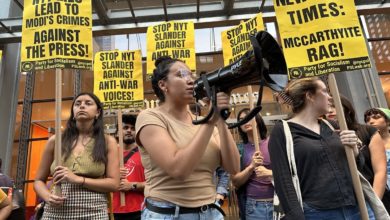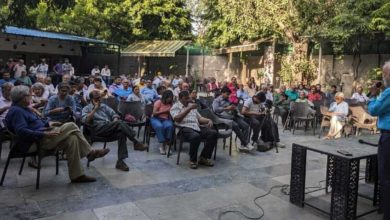In a 6-to-3 ruling on Friday, the Supreme Court gave the green light for businesses to discriminate against LGBTQ customers. In cruel twists of logic, Justice Neil Gorsuch claimed that the Colorado Anti-Discrimination Act (CADA) was not protecting civil rights, but “compel[ing] an individual to create speech she does not believe,” and extolled the public to practice “tolerance, not coercion” when confronted with intolerant bigots who would deny equal access to businesses that are open to the public. Under the court’s ruling, all the business owner would have to do is claim that the product they are providing is “expressive” in nature.
The case, 303 Creative LLC v. Elenis, dealt with Lorie Smith, the owner of a company that, at least in theory, makes websites for the weddings of paying customers. Smith claimed it was her right to discriminate against potential LGBTQ patrons and to refuse to make a website for same-sex couples because it would go against her religious views, and she sued the state of Colorado to challenge an anti-discrimination law preventing her from doing so.
It’s important to note that not only has Smith never been asked to make a wedding website by a queer couple, 303 Creative has never made any such website before for any couple at all! The New Republic contacted the man Smith claimed had inquired about making a site for him and his husband, only to find that the man is heterosexual, was married to a woman when he allegedly made the inquiry in 2018, and also had never made such an inquiry at all!
Thus, the entire case was theoretical, crafted so that the far right could present the conservative-majority Supreme Court with an opportunity to rule against LGBTQ rights.
Smith was represented in the case by the Alliance Defending Freedom (ADF), a far-right group that has led the attacks on abortion rights and LGBTQ rights across the country, pushing one bigoted law after another, including Mississippi’s anti-abortion legislation that was at the heart of the Dobbs v. Jackson decision that the court used last year to eliminate the nationwide right to an abortion.
This wasn’t the first time Colorado’s anti-discrimination law was targeted by the far right in a fight that made it to the Supreme Court. In 2018, Masterpiece Cakeshop v. Colorado Civil Rights Commission, which also concerned a bigoted shop owner refusing service to LGBTQ patrons on religious grounds, was argued before the high court. That case was also brought before the court by the ADF. The court ruled in favor of the bigoted shop owner on procedural grounds, but did not strike down the law itself or others like it.
The 303 Creative ruling is the latest example of how the court is emboldened to push its far-right agenda forward. Just this week, that agenda has also included a racist attack on affirmative action and a ruling overturning student debt relief. Only a mass movement to defend LGBTQ rights and the rights of all working-class and oppressed people under siege is capable of turning back the far-right attack against us. In the absence of such a mass movement, we have seen how the Supreme Court will feel emboldened to make increasingly outrageous, reactionary decisions. But public disgust with the court is mounting, and public opinion increasingly sees the court’s authority as illegitimate.






